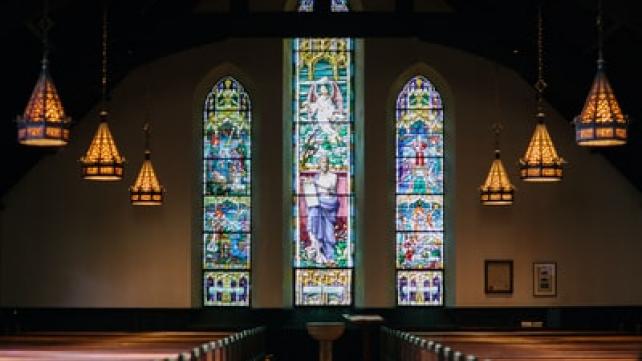
America has a history of burning and bombing African-American schools, businesses, and churches. These institutions are seen as “Black” empowerment and independence, and therefore a threat to those who would commit these crimes.
In the 1700s and 1800s, America’s systemic racism prevented and made it illegal for African-Americans to gain an education. Therefore, Predominantly Black Institutions emerged mainly after the Civil War to facilitate learning from primary to post-secondary education. These places of academia were resilient even in the face of violent threats and actions against them.
The first Historically Black College (HBCU) established by African-Americans had a number of its buildings burned. Naturally, this was meant to impede academic efforts and compromised the school’s solvency. In 1866 in Tennessee, another HBCU was burned to the ground and 46 African-Americans were murdered during the ensuing race riot. In the 1960s, Fisk University received a bomb threat when Dr. Martin Luther King came to speak. HBCUs were also targeted by the state: North Carolina A&T was threatened during their Civil Rights sit-in and occupied by the National Guard in 1969. At Jackson State University in Mississippi, the police killed two students and wounded a dozen more during a civil rights sit-in. The list goes on.
African-American schools are not the only targets of bombings or burnings. African-American churches have a long history of attacks upon them as well. Two of the most well-known were the bombing of the Black Wall Street Church in Tulsa, Oklahoma on May 31, 1921 and the bombing of the 16th Street Baptist church in Birmingham, Alabama on September 15, 1963, which injured 22 people and killed four young girls. From 1950 to 2000 nearly 50 African-American churches were either bombed or burned, and there have been another dozen since. These statistics do not include “minor” incidents of graffiti, small arsons, or defacements.
African-American majority mosques in the U.S. have not experienced a lot of this, but mosques with high immigrant populations have. In the mid-1970’s Imam W.D. Mohammed was responsible for establishing hundreds of mosques all over the U.S. after initiating a mass conversion to orthodox Islam of African-Americans who were in the Nation of Islam. Most incidents of attacks in these mosques were unreported or orchestrated by the state or federal authorities under the guise that they were looking for a suspect.
Sometimes we learn as much from the response to a severe injustice as we do from the injustice itself.
Expose
- Exposure of a discriminatory event is powerful in swaying public or world opinion. In the 1700s and 1800s the oppression and discrimination was largely unreported. But with books like “Uncle Tom’s Cabin” or “Up From Slavery”, the public gained insight to the level of atrocities being perpetrated. The 16th Street Baptist Church bombing made international news, exposing to the world America’s cruelty.
Prophet Muhammad, peace and blessings be upon him, said, "Whosoever of you sees an evil action, let him change it with his hand; and if he is not able to do so, then with his tongue; and if he is not able to do so, then with his heart—and that is the weakest of faith” (Bukhari).
Continue
- Being resilient is essential. Every African-American church or HBCU that has ever been defiled, graffitied, burned or bomb has been rebuilt. The cessation of worship or education at that place was never an option. The hardship actually strengthened the resolve, and it can confirm faith. As Muslims, we know Allah would not over burden our soul.
“Allah does not burden any soul with more than it can bear” (Quran 2:286).
Be Bold In Nipping It In The Bud H2 HEADING
- Respond with force. When African-American churches or schools have been bombed in the past, the congregations took swift and bold action. The most effective weapons: peaceful protests, letters to government officials, joining forces with peace and justice-minded individuals, as well as legal action against perpetrators or government and public service officials who are slow to respond. In the early 1980’s, the first mosque in the U.S. built from the ground up by an African-American majority community, Masjid Jauharatul-Islam in Phoenix, Arizona was defaced with graffiti on the stucco gates surrounding the structure. The graffiti was an attempt to mark territory by the CRIP gang members who had recently moved into the area, even though this was a country mosque outside of the inner-city. The response of the Muslim men was swift and bold. The Muslims took on the mindset of the believers of the Prophetic age and drove those gang members away and even took legal action that required them to re-stucco the gate .
Sa’d ibn Abi Waqqas, may Allah be pleased with him, said: “I said: ‘O Messenger of Allah, which of the people are most sorely tested?’ He said: ‘The Prophets, then the next best and the next best. A man will be tested in accordance with his level of religious commitment. If his religious commitment is strong, he will be tested more severely, and if his religious commitment is weak, he will be tested in accordance with his religious commitment. Calamity will keep befalling a person until he walks on the earth with no sin on him.’” (Tirmidhi)
We must acknowledge that although these people were victimized, they refused to give in to being victims. As Muslims we fully understand that Allah tests the believer.
The Prophet said, “When Allah desires good for someone, He tries him with hardships.”(Bukhari



Add new comment